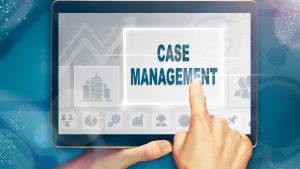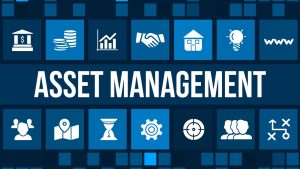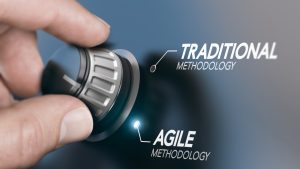With the global economy continuing to improve, more companies scaling for growth. Capital investments continuing are gaining momentum, businesses want to get up and running more quickly with ERP. The intention is to quickly automate repetitive, time-consuming tasks–and to get better insights into what’s happening in the businesses. All above factors will lead more companies to revisit their ERP systems.
Thus, vendors will continue to provide new functionalities or provide long-term support for these dated products. Businesses will have to embrace change and migrate to more modern enterprise technologies. Given below are some trends that will shape the future of the ERP systems we know.
Cloud services have come to the fore – The ongoing shift to cloud computing will continue and accelerate. One of the drivers for adoption is scale. Most enterprises are handling more complex activities in terms of numbers, services, customer interactions and marketing activities. This will cause more transactions to hit the ERP – increasing the demand for systems suited for a cloud enterprise.
Consumerization of ERP systems – ERP systems are cautiously evolving to provide a better and easy user experience. The best examples are the ERP applications on the app store, which would need to be approved of the store itself. This is to ensure that the software package complies with usability and intuitiveness factors. Consumers are demanding easy “plug and play” software operations. Vendors consumerizing ERP systems to the millennial generation will understand the nature of the modern “Instant gratification user”. This literally means a mobile-friendly and easy to use systems.
Mobility will become mainstream – Many industry analysts like to talk about SaaS and the cloud – both which will increase interaction, but mobility is the most discussed aspect which is already a trend. Key management personnel, back office staff, mall floor workers, and almost anyone else out there will use mobile devices to access enterprise data. They prefer it to the traditional desktop. The industry is accepting freelancing and part timing as sources to get labour on demand. It is convenient to have a mobile-friendly solution for this segment who are frequently on the go.
Increasing focus on business intelligence and data – This trend which is already established is likely to gain more momentum during the years to come. Capabilities in enabling scalability, governance, mobility, and standards have made businesses even more powerful and effective. Businesses want to make use of analytical capability to make sense of data with minimum effort and time. ERP vendors such as SAP, Oracle, Infor and others are already investing heavily in their business intelligence capabilities, so look for this trend to continue well into the future.
Fragmentation of ERP software – Many organizations who are considered uptick are not actually seeking a full-blown ERP software. They are instead looking for a combination of activity-specific systems such as warehouse management systems, customer relationship management systems and/or human capital management systems. Users will be able to pick and choose several different applications, each dedicated to a specific business need and string them together for a tailored solution. In a way, this integrated ecosystem is the modern version of what we consider an ERP software system.
The main driver is that implementing many systems (CRM, HCM, WMS…etc.) as opposed to one are,
- Low Upfront Cost – low cost of ownership
- User Experience – not bogged down by unnecessary functionalities/modules
- Subject Matter Expert – applications are built for a specific purpose by people who thoroughly understand user’s potential use cases as opposed to a full ERP system.
Therefore, more companies are opting for this option which seems futuristic.
Organizational change management is the primary factor that influences successful ERP adoption – When implementing an ERP system, organizational change management has always been one of the biggest challenges identified by companies across the globe. The 2014 report by Panorama Consulting Solutions on ERP identified organization change management as the hands-down top reason why projects were delayed and/or ran over budget.
This suggests a trend toward a focus on these important issues. To add further credibility to this argument, one only needs to consider that technology has become an inevitable aspect of day to day business – meaning that “softer” issues such as organizational change management will become the primary differentiators between companies that succeed in their ERP implementations versus the ones that fail.
Integration with social platforms – Social media is here to stay, and although it may seem a bit far-fetched – ERP is likely to be integrated with the likes of – Facebook, LinkedIn, and Skype in future. This approach is appealing to millennials entering the workforce. Communication through these social channels can be very important, and data from them can be utilized to customize company strategy. The ease of use with integrated social platforms to the ERP solution can bring productivity gains that result in increased profitability.
Incorporation of Self-help tools – Reducing the learning curve of an ERP will definitely be a catalyst in its adoption and ultimately to the business productivity. Inbuilt guidance tools, video demonstrations, content knowledge bases, chat communities, user and advisory groups will be a must in ERP systems of future.
It is evident that future ERP systems are likely to undergo a radical shift driving the capabilities of modern-day ERP systems further.
Businesses are consistently evolving and needs are getting increasingly complex. ERP solutions are increasingly becoming a core aspect to drive in efficiency, productivity, intelligence, and profitability for businesses. Thus, businesses will look at having an advanced ER system that suits the business – which will be a necessity of the future.






